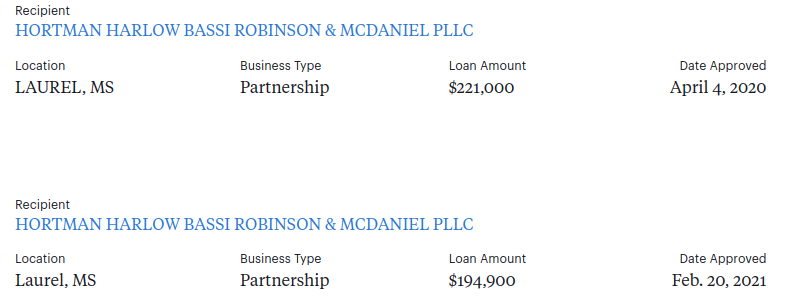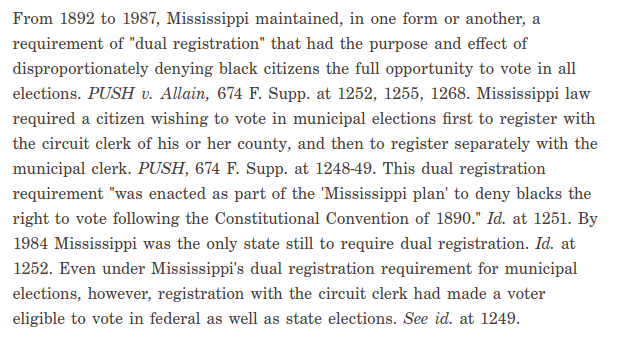
QUICKTHREAD: The MS Court of Appeals this week affirmed an 18-year-old's 10-year sentence (4 years to serve, 6 suspended) for gratification of lust (GOL) with a 15-year-old. courts.ms.gov/Images/Opinion… 1/
The GOL statute says it applies to defendants "over the age of 18." casetext.com/statute/missis…
So, one of the defendant's arguments was that it is unconstitutionally vague to apply the statute to defendants under the age of 19. 2/
So, one of the defendant's arguments was that it is unconstitutionally vague to apply the statute to defendants under the age of 19. 2/
That argument initially seemed weak to me. However, it appears that the result makes Mississippi's overall statutory scheme inconsistent.
It does not appear that the two teenagers were a full 36 months apart in age... 3/
It does not appear that the two teenagers were a full 36 months apart in age... 3/
...so the defendant could not have been charged with statutory rape, which carries a maximum 5-year sentence. casetext.com/statute/missis…
Yet, starting GOL liability at 18 instead of 19 exposes the defendant under the GOL statute to a 2-year minimum/15-year maximum sentence. 4/
Yet, starting GOL liability at 18 instead of 19 exposes the defendant under the GOL statute to a 2-year minimum/15-year maximum sentence. 4/
It makes no sense for the statute with the harsher sentence to apply to the lesser offense.
In any event, if the same sex had occurred either a few months earlier or a few months later, then no crime would have occurred at all. 5/
In any event, if the same sex had occurred either a few months earlier or a few months later, then no crime would have occurred at all. 5/
But back to the court's opinion, written by Judge Carlton...
Judge Carlton appears to commit clear error in describing the standard to be applied. She says the court will only strike down a statute if it is unconstitutional beyond all reasonable doubt, which misses the point. 6/
Judge Carlton appears to commit clear error in describing the standard to be applied. She says the court will only strike down a statute if it is unconstitutional beyond all reasonable doubt, which misses the point. 6/

The argument was not that the GOL statute is unconstitutional and that the court should strike it down.
Rather, the argument was that the prohibition on vagueness requires the court to interpret the statute in a particular way. 7/
Rather, the argument was that the prohibition on vagueness requires the court to interpret the statute in a particular way. 7/
In that sense, the vagueness doctrine overlaps with the rule of lenity (which this defendant should have referenced more explicitly), which actually requires Judge Carlton to FAVOR the defendant. 8/
This defendant should request rehearing so that the court can review his claim under the correct standard, and the court should grant rehearing, although it would not necessarily change the outcome. 9/
• • •
Missing some Tweet in this thread? You can try to
force a refresh








